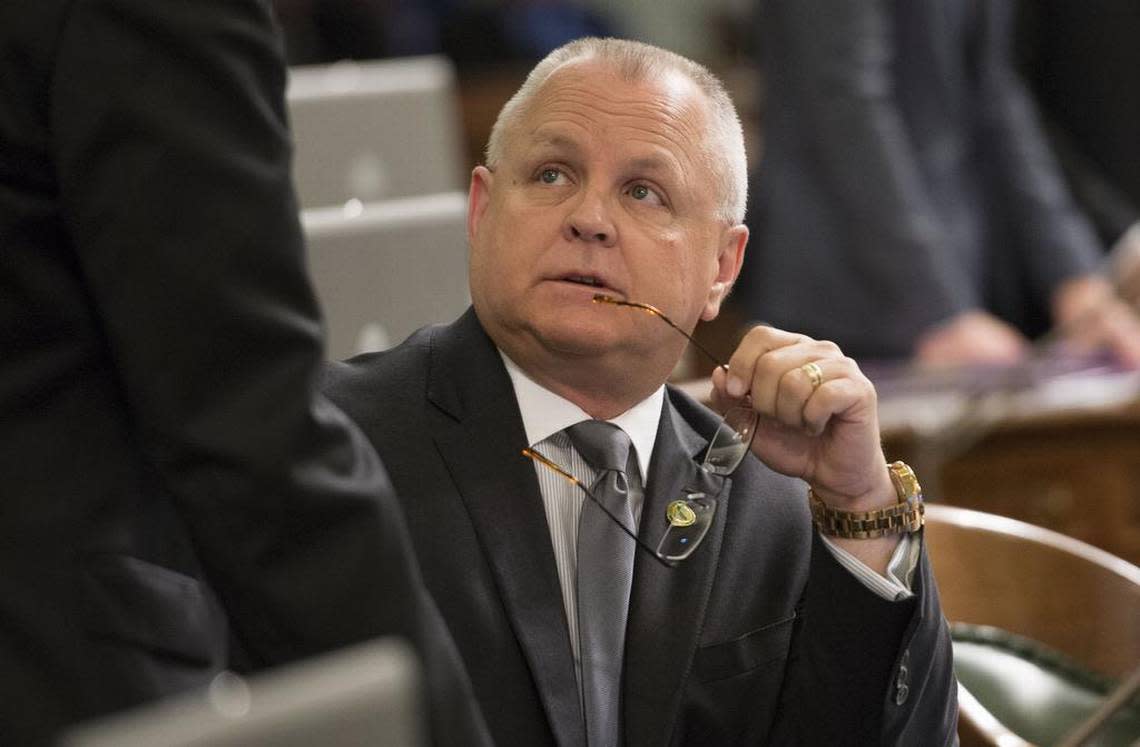‘It’s important to know who you are.’ California bill aims to help adopted people get birth record

At a town hall last fall, a man came to Assemblyman Tom Lackey, R-Palmdale, with a challenge.
For years, he told the legislator, he had tried to get his original birth certificate from the state. But he was adopted, making that much more difficult under California law. Would Lackey try to do something to address the issue?
“I was very sympathetic to his plea,” Lackey said.
The lawmaker, a father of two adopted children, knew that the process isn’t the same for everybody. His son and daughter were able to get their original birth records because they have relationships with their birth mothers.
In February, Lackey introduced a bill that would change how California handles requests from adopted people who want to obtain their unredacted birth certificates. While the rules around the requests would remain more restrictive than those in many other states, Lackey said his goal is to give adopted people better access to their personal records.
Currently, original birth records are placed under seal when most children in the state are adopted. In those cases, if adopted people later request a birth certificate, they will receive an amended version with their adoptive parents listed.
Judges can unseal the records. But people who were adopted said in interviews that requests to do so are not often successful.
Under AB 1302, the state would be required to contact the birth parents of an adopted person who requests an unredacted birth record. If the parents deny the request, or don’t respond, the adopted person cannot get the complete original document.
The bill does allow for the records to be released if both birth parents are dead.
Gregory Luce, a Minnesota-based attorney, agrees with Lackey that California’s rules should change. He founded the Adoptee Rights Law Center and helps people obtain their original birth certificates.
“It is the most conservative state in the country for adopted people on that issue,” Luce said.
Yet, he opposes the proposal. For several years, Luce struggled to get his own birth certificate from officials in Washington, D.C., where he was born and adopted. Luce, 57, eventually got it in 2020.
So, when he looks at AB 1302, he sees a process that is still too convoluted and unnecessary for adopted people.
Instead, Luce would prefer that California allow all adopted adults to request and receive their birth certificate without restrictions, other than paying the normal fee to get the record. He said he is willing to work with legislators to get there.
Currently, 12 states allow adopted people of a certain age unrestricted access to the original document, according to the law center. Vermont will join them in July.
“For me, and for everyone, it’s important to know who you are and where you came from,” he said.
Lori Schultz, a school administrator near Bakersfield, was able to find her birth parents using the minimal information the state would release. She even connected with her birth mother, who told Schultz that she was happy they did.
Still, Schultz, 62, said it would be especially meaningful just to hold her original birth record.
“I kind of feel like I was forced into a secret witness protection program.”
Like Luce, though, she is opposed to the bill, calling it well meaning but misguided.
“We should have unrestricted access,” Schultz said.
So far, more groups oppose than support the measure, according to an analysis produced by a legislative staff member.
Despite the push back, Lackey said the support the bill has received from lawmakers gives him optimism. The proposal has three co-authors, including one Democrat. The Assembly Judiciary Committee also advanced the bill Tuesday.
“We believe we’re on the pathway to a successful step in the right direction,” Lackey said.

